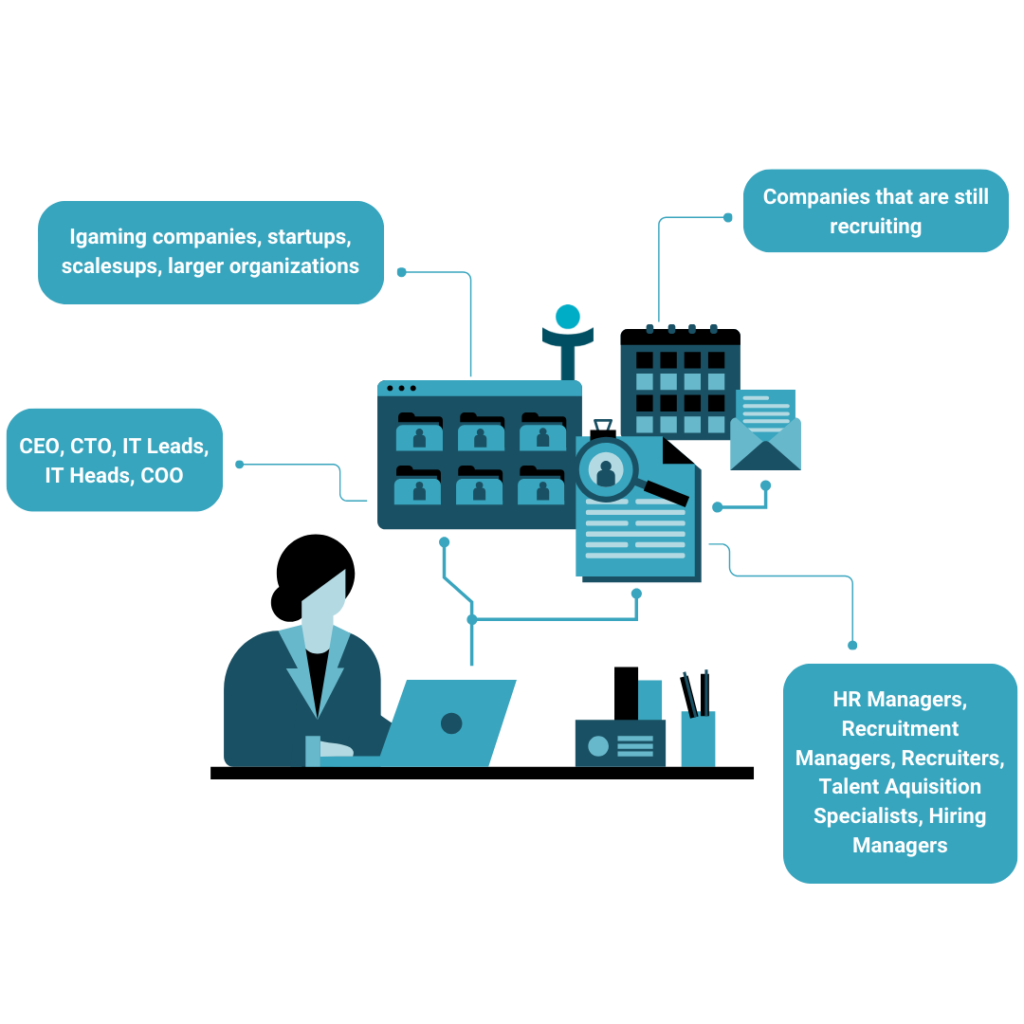
Have you ever wondered about the challenges and prospects that the job market in Poland will bring in 2024? The latest research and reports we’ve come across shed new light on the situation in the Polish job market. As we prepare for what awaits us in the coming year, we’ve gathered some key insights, and we’re excited to share them with you 
What lies ahead in 2024? What will the Polish job market look like?
In the latest report prepared by the Polish Agency for Enterprise Development (PARP) titled “Labor Market, Education, Competences. November 2023,” we found surprising information regarding 2023. According to the report, the professional activity of Poles improved, and the number of employed individuals reached a record-breaking 17 million people. This includes those employed full-time, those working in their own or family businesses, as well as those engaged in other types of work. According to the report, the Polish economy did not reach the peak of the number of employed individuals in 2023, but this may happen in 2024.
What about unemployment in 2024?
According to GUS and Eurostat data, the unemployment rate in Poland is one of the lowest in the European Union. Further strengthening of the employee’s position in the job market is expected in the coming year, with the unemployment rate dropping from 5.1% to around 4%. In an era of low unemployment, there is a high demand for workers, evident from the current number of job offers. At the end of the second quarter of 2023, GUS counted as many as 113 thousand vacant positions in Poland. Projections for 2024 indicate a continuation of this trend. The most sought-after workers include, among others, automation specialists, locksmiths, mechanics, and welding technicians. The demand for these specialists is rising, replacing IT recruitment, which was very popular in the past years.

IT Industry in 2024 Worldwide, Including the Polish Market
In 2024 the IT industry will be shaped by several key trends. The development of artificial intelligence (AI) and machine learning (ML) will be crucial for creating autonomous systems and advanced data analysis.
These technologies will enable the creation of more intelligent and autonomous solutions that will anticipate needs and optimize processes in various industries from medicine to transportation. Additionally, AI and ML will significantly impact the personalization of services and products, offering user-tailored experiences and increasing operational efficiency for companies.
By 2025, Global 2000 organizations will allocate over 40% of their main IT expenditures to AI-related initiatives, leading to double-digit growth in product and process innovation. This will affect almost every industry and application.
Certainly, the Internet of Things (IoT) will contribute to increased automation and efficiency in various sectors, allowing better monitoring and management of operations. Simultaneously, cloud computing will provide flexibility, scalability, and IT resource availability, essential for companies to quickly adapt to changing market requirements.
Cybersecurity will also become more critical in the face of a growing number and complexity of cyber attacks, necessitating investments in advanced security solutions by organizations.
Soft skills, such as creativity, adaptability, and collaboration, will be a significant trend. They will become a key factor in the IT industry. Deloitte’s research indicates that the traditional job position division is becoming outdated, and human skills are increasingly valued in organizational development. The “Global Wellness Institute“ report emphasizes that 89% of employers consider the mental health of employees a priority, directly impacting their productivity and engagement.
Employment Prospects in IT: Worldwide and in Poland
The global economy will gain approximately 69 million jobs thanks to AI, but 83 million people will lose their jobs due to the development of new technology. AI engineering is one of the most promising industries, and now is the perfect time for its development.
According to LinkedIn, the second most frequently posted job vacancy since the third quarter of 2023 is Artificial Intelligence Specialist.
According to the Indeed report, a machine learning engineer ranked first on the annual list of the 25 best jobs in the USA, recording a 344% increase in the number of job offers over the past few years and an annual base salary of $146,000.
The No Fluff Jobs portal described in its report that in 2023, there is a 68% increase in demand for AI-related jobs compared to the previous year (2022). Job offers requiring Natural Language Processing (NLP) skills are also 195% more sought after. On average, there are 30 to 80 candidates for each job posting. Regarding the salaries of individuals working as AI Specialists: In 2021, the median salary range was 18,000 – 24,000 PLN. A year later, shortly after the release of the first version of ChatGPT, it increased to 20,000 – 30,000 PLN. In 2023, it decreased again, reaching an even lower level of 13, 000-20,000 PL.

What else we expect in Poland in 2024?
Despite recent voices suggesting that remote work may not be a good idea, remote and hybrid forms will continue to be popular in 2024. Deloitte indicates that half of the people are considering changing jobs if they cannot work remotely or if the number of days in the office increases.
In 2024, there will also be an increase in wages, both minimum (from 3600 PLN to 4300 PLN) and average salaries in the economy (which were 7379 PLN in 2023). This growth is a result of wage pressure and the decreasing availability of workers. Additionally, there are increasing demands for benefits, such as medical or sports packages, language courses, and training budgets. There is a growing emphasis on mental health and maintaining a balance between professional and personal life.
Consistently, the biggest challenge will be retaining and attracting talents, especially in the context of increasing competition and the expectations of employees. Employers must offer more competitive conditions, taking into account the changing needs and priorities of employees. According to the Page Group report, as many as 94% of employees are open to a new job, regardless of their length of employment in the current company – loyalty to the employer will not be a popular phenomenon in 2024.
Summary
In 2024, the Polish job market faces exceptional challenges. Low unemployment and a massive demand for specialists in various industries make talent acquisition more competitive and demanding.
At SimplyTalented, we already observe that companies need to update their recruitment strategies to meet the growing expectations of employees, emphasizing flexibility, mental health, and appropriate remuneration.
If you want to hire the best specialists in the industry, write to us, and we’ll discuss your recruitment challenges.may
Let’s start
cooperating
Send us a message whether you are thinking of a career change, looking for exceptional talent or just would like to meet for a coffee and chat.
Related Posts
How to Choose the Best IT Recruiting Firm: Key Success Factors for 2024
In 2024, the IT industry is no longer a bidding paradise, but the demand for…
Women in Tech Statistics in 2024: Trends, Gaps, and Challenges
The tech industry is evolving, with recent data shedding light on the role of women…
Challenges in recruiting Women for Tech roles
Recruiting women, particularly in certain industries and roles, presents a unique set of challenges. These…
Empowering Women in Tech: Key Initiatives in Poland
The tech industry in Poland is witnessing a dynamic shift towards inclusivity and diversity, driven…



